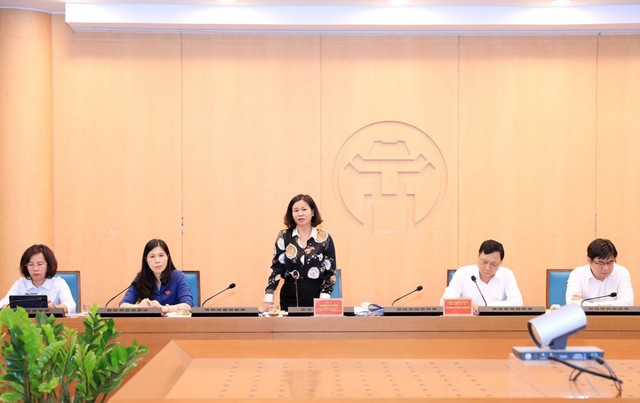Local authorities prepare for enforcement of amended Capital Law
VGP - The local authorities of Ha Noi pledges to enforce the amended Capital Law which takes effect from January 1, 2025 despite a heavy workload, said Vice Secretary of the Ha Noi Party Committee Nguyen Thi Tuyen.

Vice Secretary of the Ha Noi Party Committee Nguyen Thi Tuyen during the session
Ms. Tuyen made the announcement at a group discussion at a session of the 17th Ha Noi People's Council.
With the amended Capital Law set to bring significant legal breakthroughs for Ha Noi's development, the key issue will be to ensure its effective operationalization when it takes effect in early 2025.
According to Tuyen, a significant highlight for the city in the first six months of the year was the progress made on several major legal initiatives.
In particular, the amended Capital Law passed by the National Assembly and two master plans, which provide a legal framework and long-term strategic direction for Ha Noi's development, are currently undergoing public consultation.
Regarding the 83 tasks within the city's authority related to six draft Government decrees to put the Capital Law into effect, Deputy Secretary Tuyen noted that this substantial workload requires immediate action.
So far, the City People's Council has been assigned 35 tasks, and the concretization of these responsibilities is a heavy burden.
The Department of Justice has drafted a plan, but guidance is needed from the Party Committee, the People's Council, the People's Committee, the Fatherland Front, and other organizations, along with clear responsibilities for various departments and sectors to execute the tasks, said Anh.
The amended Capital Law consists of 7 chapters and 54 articles, compared to only 4 chapters and 27 articles in the 2012 version. This underlines the importance of this legislative project for the development of the capital and the country as a whole. While the current version mainly serves as a framework, the latest version addresses particular aspects related to decentralization and delegation of powers.
Notably, the new law contains several new provisions, such as those on urban government organization; construction, development, management, and protection of the capital; finance, budgeting, and mobilization of resources for capital development; regional linkage and development; and supervision, inspection, audit, and responsibilities for the development, management, and protection of the capital./.

